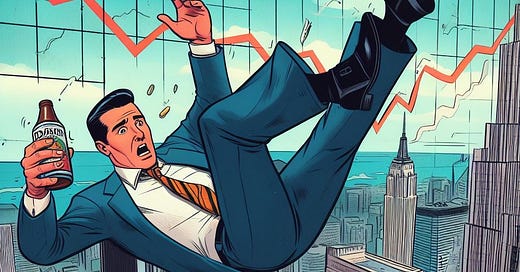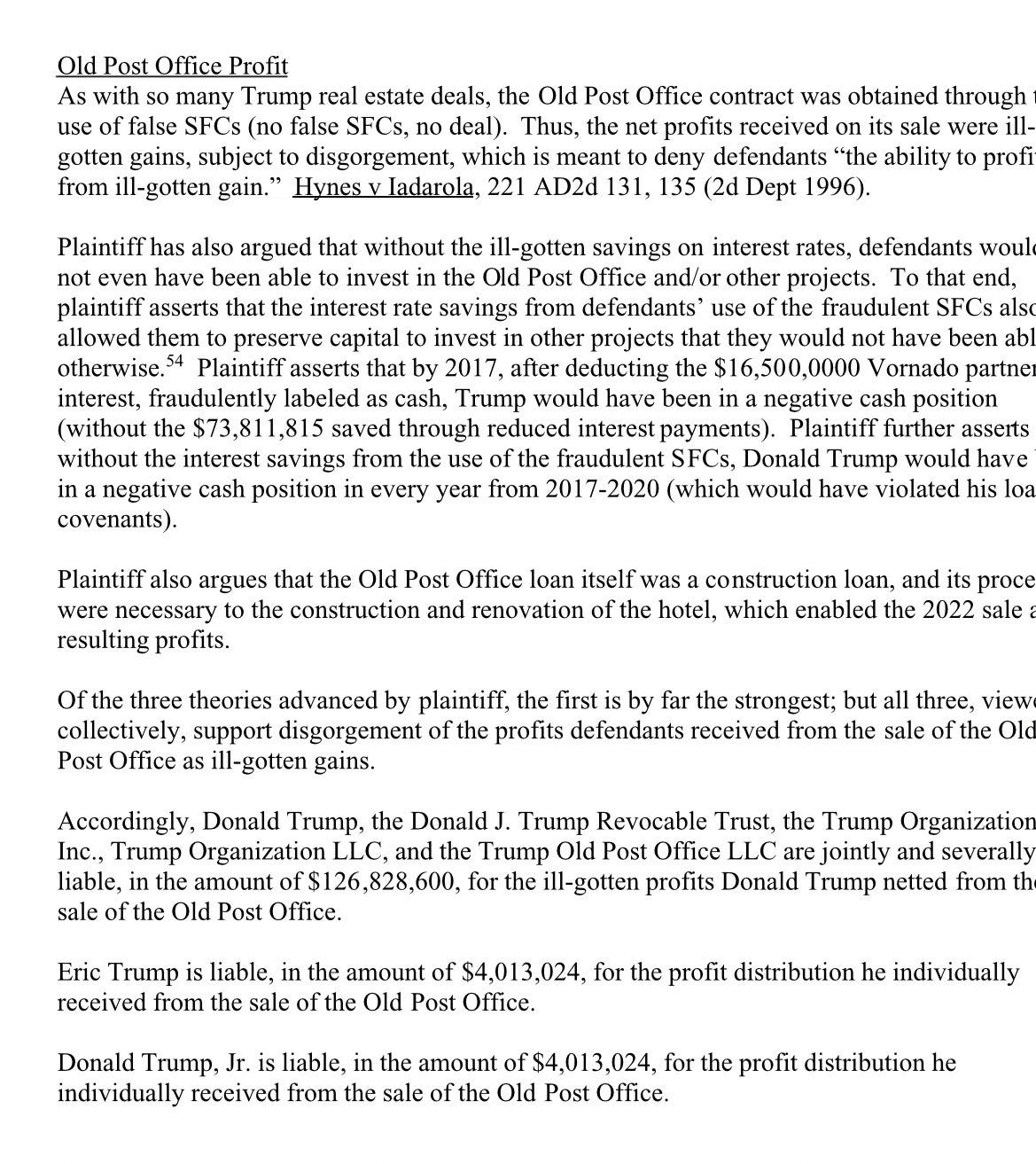During the fiasco of early 2021, I attempted to explain how markets had debased from traditional value, but still had a form of value (ML 36, 3/04/2021):
A fundamental principle of any Buffett-and-Graham-ite is that “the dollar matters”. Every thicket of valuation, business strategy, and investment strategy is built off of optimizing “the value of the dollar”.
But what happens when the dollar doesn’t matter?
…A common pontification in the financial journalism space is whether “value investing is dead”, when the question really should be “what is value denominated in when cash is worthless?”
This ties into a core criticism of crypto, where people smugly say “well what do you cash your crypto gains in other than currency?”, but here’s the counterpoint: what if we consider “meaningless transactions” as realizing crypto gains in a relative value sense denominated in clout? I am reminded of the phenomenon on the early days of the app store of “I Am Rich”, a predecessor to the meaningless NFT in that there was no value other than showing you could set money on fire through having the app.
I’ll preface this all with saying that I don’t really actively trade anymore. I still work on systemic ideas, both across tradfi and crypto, but largely my own allocations follow a proprietary method of using my four stock portfolio (ML 107, 6/18/23). As I wrote about the market state a couple weeks ago,
Inflation is a bit of a self fulfilling prophecy, and the only “inflation hedge” is to outpace the rate of inflation through rate of return. This is why owning large cap liquidity or real assets is so valuable until the speculative mania tapers off
Since June, we haven’t gone under 3% inflation. By definition, it is sticky. (Turns out, you can’t subsidize demand and blast government spending every which way and not permanently shift the dynamic). The point of rising rates is not to cull investment, but to make it smarter. But when every merger is blocked and agency heads are out of control, investment naturally concentrates (see: NVDA) or offshores. So whether it’s JEO BODEN or Southern California homes, the takeaway is as follows: if inflation doesn't fall, the only thing to do is to continue to try and outpace the rate of return.
Not to belabor this point, but everything has turned into a collectively owned, collectively crowded trade — something I’m simply not comfortable with trading myself. Everything turns into a liquidity suck of sorts — historically, it would be called “sector rotation” when big fundamental flows moved from, say, telecoms to energy. Nowadays, this happens hour-to-hour. Continuing my point about trading addiction (ML 109, 8/2/23),
In the smartphone-driven instantaneous information access age, there's virtually no ability to remove the prior of access. One imagines Dostoevsky's Gambler would be much less interesting to read about if he existed in a nation that had no roulette. Beyond the sports betting ads shoved ad nauseam in every broadcast, nook, and cranny of ordinary society, it's never been more impossible to *avoid* it all. The securitization of everything was not made to withstand seamless speculation. The endless operation of markets, and markets on those markets, and markets on *those* markets, means that no matter where you are in the world, as long as there is internet access available, you can place a trade, having done so myself 35,000 feet above the Pacific Ocean on my way to Singapore.
we realize that you either have to be on all the time to keep up with the rapid flow of shitcoins (which has totally replaced “meme stock” trading — DJT/DWAC is the exception here) or you have to trade on a longer horizon, because the liquidity and pump is cyclical. The regime change is so fast that “sector rotation” from BTC on an ETF thesis to Solana shitcoins to wherever’s next happens inter-weekly and also has secondary pumps before the money shifts to the next trend.
We know it’s all nonsense. Market capitalization, future cash flows, P/E ratios, Graham, “value”, are coping rationale for “intelligent investors” who don’t understand that valuation has not, nor has it ever been, a short thesis (ML 7, 12/09/20):
“Valuation is not a short thesis” is one of my all time favorite sayings about markets, which ties back into the “theoretical valuation” discussion from yesterday: as long as speculators are still biased towards the upside, the price of a stock will continue to be bid up. As such, shorting a stock requires both the valuation to be high and a catalyst to bring the stock price back to reality - in essence, betting on the downside requires being correct both on the price and the timing.
The best way to think about theoretical pricing (“valuation”) is that, you can have any sort of proprietary valuation you want, but the only thing that matters is whether you can get filled or not, whether it is an M&A deal or a call option. What we realize is that, beyond all the waxing poetic about the “philosophy of money” and “postmodern markets”, the only thing that matters anymore is “number go up”. You can call it (3,3), Marxism, “everyone dependent on the same trade”, or whatever you want, but the core point is that nobody values bid-side liquidity the same as ask-side liquidity at the moment, so all you can do is stay long with everyone else. Unless this pattern of behavior cohesively breaks — and there’s no “one way” to do this — you will always get a rebound after, say, an NVDA selloff or a temporary dip in housing prices.
The only two catalysts I see for this changing are as follows:
A) election clarity either way — if this current regulatory state continues for another four years, you will certainly see some sort of offshoring/resignation. It’s totally unfeasible to be a nascent business and ask for an extra 3 years of time, runway, and lawyers to fight whatever happens to be the whim of the month from the top of the FTC or the SEC. OTOH, since we are apparently destroying the concept of property rights solely because New York doesn’t like Trump, it remains to be seen how far we will go:
TLDR: the judge disgorged all the downstream profits of this loan Trump “should never have gotten” (nevermind that DB did not use any of Trump’s numbers when pricing an OTC loan against an illiquid, never-transacted asset and he didn’t miss a payment) because the judge deemed the loan fraudulent. Again, nobody missed a payment. Having some knowledge of shareholder class actions, I’m sure I could trivially bring an innumerable amount of them if this statute does not get completely destroyed on appeal. Election uncertainty is probably the worst I’ve ever seen it this time around.
B) AI actually does create a cross-industry, revolutionary application (<3 years is my timeline) or if it doesn’t (more likely imo), the entire tech sector’s air lets out. The sector inflows have been so congregated into existing tech and purely speculative AGI plays that, without some sort of benefit across industries, this seems like incinerated capital and compute (which will spook the “sector rotation” class.) I did note that MSFT seemed very skittish when it came to OpenAI based off their investment structure (ML 79, 1/11/23):
While Microsoft’s investment is clearly an equity investment bullish on the overall ability of OpenAI to facilitate the production of a minimum viable product, it’s interesting to me that the proposed terms highlight a right to 75% of OpenAI’s profits — it’s kind of like having the ability to exercise an option to cash out rather than essentially being required to plunge any revenue into reinvestment to potentially gain a positive ROI as you’d normally expect from a venture equity position. To me, this “fail-safe” implies a certain level of skittishness that OpenAI will ever produce anything of real go-to-market value.
Further evidenced by Nadella’s comments that they really do own all of OpenAI’s shit if they want it:
I vastly overestimated Google’s edge, which we all saw self-immolate with the Gemini fiasco but, knowing their corporate history, I knew they wouldn’t be likely to deliver a paradigm-shifting product. The core issue is who else do we bet on? NVDA has been funding startups to buy its own GPUs and doing like 20 different things that got Jeff Skilling 20 years. Everyone already owns their shares. Everyone already owns MSFT because it’s the only way for people to get in on OpenAI’s cap table exposure. Everything is so levered and so crowded around one of these existing players figuring it out — how much of the market can handle active, chaotic demand for bid-side liquidity in a mass-recalculation that current companies won’t win on AI rather than the passive lurching of ETFs? Prices don’t drop due to “mass selling”, but rather lack of bid. In markets that are actually volatile on individual tickers, bid-side liquidity is in much greater demand — a total inverse of the current market state, which is why in this “liquidity suck” market regime, it’s so precipitous even though nothing really happens day to day other than random shitcoins pumping. Time in the market beats timing the market, but not when timing the market so obviously revolves around a couple breakpoints.
The long and short of it (heh) seems to be that you don’t have to tune in, but you certainly can’t tune out. We are, in fact, all trapped in the same regime. Decide what you want to do — full-time screen time or touch grass, both approaches work here — but be prepared for the entire regime to shift literally overnight.











